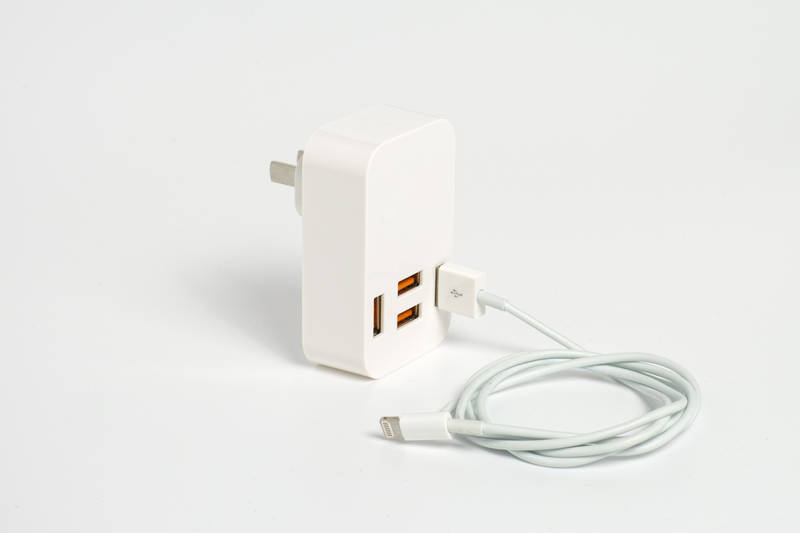Easy Ways to Prepare and Store Your Freezer When It's Not Needed
When your freezer is not in use--maybe due to travel, relocation, or a seasonal change--proper preparation and storage become crucial. Neglecting these steps can lead to unpleasant odors, mold, or even permanent damage to your appliance. This comprehensive guide covers easy ways to prepare your freezer for storage, with actionable tips to ensure your appliance stays in top shape during periods of non-use.

Why Properly Preparing Your Freezer Matters
Freezers are designed to run steadily, storing perishable foods safely for extended periods. However, leaving a freezer unused without proper care may result in:
- Mold and mildew buildup
- Persistent odors
- Unwanted pests
- Decreased lifespan and efficiency
Step-by-Step Guide to Prepare and Store Your Freezer
1. Empty the Freezer Completely
The first and most important step is to empty your freezer entirely:
- Remove all food items. Safely consume, donate, or dispose of perishable items.
- Avoid storing food in an unused freezer, as it will spoil quickly without constant cooling.
2. Defrost the Freezer
How to defrost your freezer:
- Unplug the unit from the power source.
- Keep the door open to let warm air in, speeding up the melting process.
- Remove ice buildup using a plastic scraper. Do not use metal objects--this can damage the interior lining.
- Place towels around the base to catch the melting ice and water.
3. Clean and Deodorize
Keeping your freezer clean is essential before you store it. Here's how to do it:
- Mix warm water with mild dish soap or use a solution of vinegar and water for a natural clean.
- Wipe down all internal surfaces, shelves, baskets, and seals.
- For stubborn stains or odors, make a paste from baking soda and water and scrub gently.
- Rinse with a damp cloth to remove any cleaning residues.
- Leave the door open for an hour or more to let the interior dry completely.
4. Dry Thoroughly Before Storage
Moisture is your freezer's enemy when it's not in use. Excess dampness can foster mold growth and musty smells.
- After cleaning, prop the door open to allow complete air-drying--this can take a few hours.
- Baking soda or silica gel packs placed inside can help absorb any residual moisture and odors.
5. Secure and Store Removable Parts
- Take out racks, shelves, and baskets. Clean and dry these separately.
- Wrap or box these pieces for safekeeping near your freezer to avoid loss or damage.
6. Prop the Door Open
It's essential not to close the freezer door fully when storing it long-term. Instead:
- Wedge a towel or block to keep the door slightly ajar. This lets air circulate, preventing mold and musty odors.
- If your freezer has a lock, avoid using it during storage to ensure airflow.
7. Store the Freezer in a Suitable Environment
Location is key when storing your freezer while not in use:
- Keep it in a dry, well-ventilated spot. Avoid humid basements or garages prone to temperature extremes.
- Protect the appliance from dust, pests, and moisture by using a breathable appliance cover.
- Elevate the freezer slightly off the ground to protect against flooding or moisture buildup.
8. Maintain Periodic Checks
Don't forget your freezer altogether during its stored period:
- Check every month for signs of excess moisture, pests, or odors.
- Refresh the baking soda or desiccant packs as needed.
- Wipe down and clean as necessary if you notice any residue.
Tips for Seasonal and Long-Term Freezer Storage
Whether you're putting your freezer away for a season or longer, these simple freezer preparation techniques apply:
- Label and date the unplugged freezer indicating when it was last cleaned and prepared for storage.
- Ensure all power cords are safely coiled and secured. Consider taping them to the back of the unit.
- Don't stack heavy items on the freezer during storage. This can dent or damage the appliance.
- Keep the user manual handy in case you need to reference it upon reactivation.
Common Mistakes to Avoid When Storing Your Freezer
Successful storage comes down to what you don't do as much as what you do:
- Don't skip cleaning--even tiny food residues can cause odors or attract pests.
- Never leave the door sealed shut during long-term storage.
- Avoid using abrasive cleaners or harsh chemicals, as these can damage interior surfaces.
- Resist storing the freezer in damp areas, which accelerates rust and electrical issues.
Reactivating a Stored Freezer: Best Practices
Once you're ready to use your freezer again, follow these simple steps to bring your freezer back into service:
- Inspect the freezer thoroughly inside and out for dust, pests, and signs of mold.
- Clean or replace seals if you notice any wear or cracks.
- Plug the unit in and run it empty for several hours to ensure proper function and cooling.
- Restock with food only after the freezer reaches a safe, low temperature (generally 0?F/-18?C).

Frequently Asked Questions About Storing Freezers When Not In Use
- Q: Can I leave my freezer unplugged for months?
A: Yes, but it must be properly cleaned and dried first, and the door should stay open to prevent mold growth. - Q: How do I prevent freezer odor when stored?
A: Use baking soda or activated charcoal inside, keep the freezer clean, and leave the door slightly open. - Q: Is it okay to store a freezer in a garage or shed?
A: Only if the area is dry, well-ventilated, and protected from temperature extremes. Covering the freezer with a breathable cloth helps keep dust out. - Q: Do I need to remove the freezer door for storage?
A: For very long-term storage, removing the door can prevent accidental closure and ensure airflow, but it is generally sufficient to just prop the door open.
Final Thoughts: Store Your Freezer Smartly
Proactively preparing and storing your freezer when it's not in use saves you money, prevents unpleasant problems, and extends the appliance's lifespan.
- Empty, clean, and dry it thoroughly
- Leave the door propped open
- Store in a dry location with the right environment
- Check periodically for ongoing freshness
Additional Resources and Reading
If you found these easy ways to store your freezer when not needed useful, bookmark this page for future reference or share it with friends who may benefit from simple freezer storage solutions!



